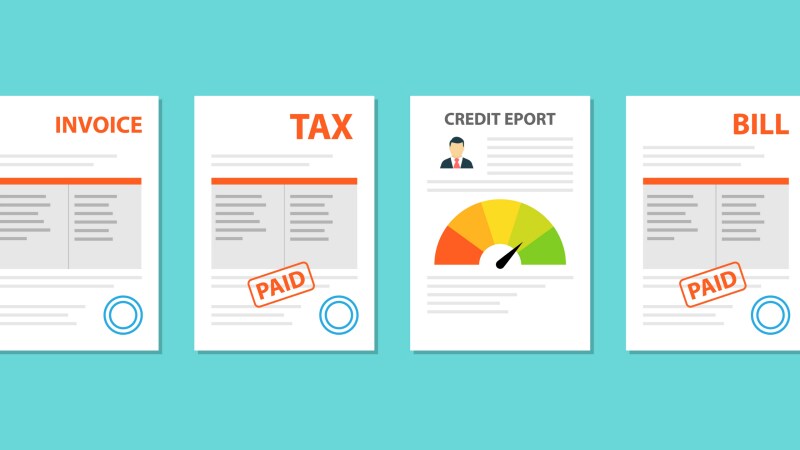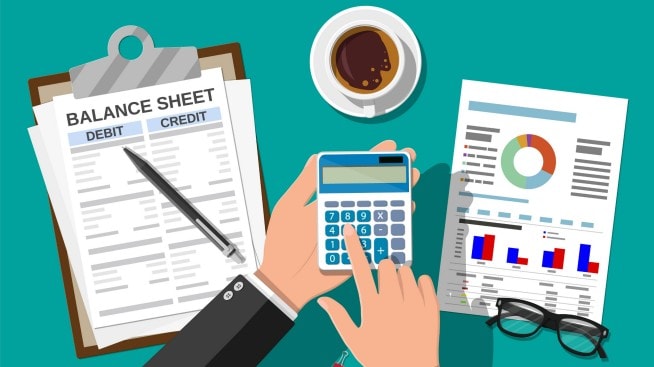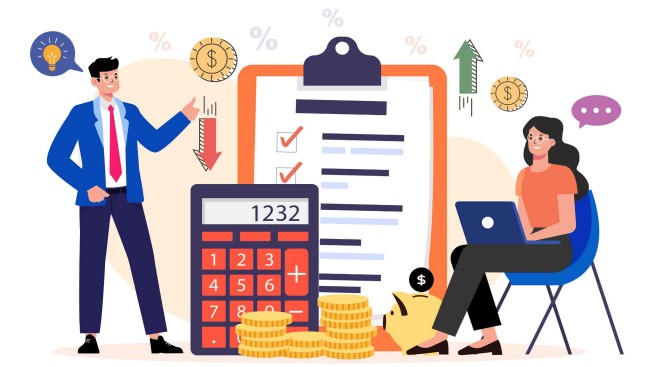What is a credit report

Quick insights
- Your credit report is a detailed record of your credit history.
- Credit reports can include information about the amount you owe to lenders, whether you pay bills on time, if you've ever declared bankruptcy and if you have different types of credit.
- Credit reports may impact your ability to rent an apartment or get a loan or credit card.
While your credit report and your credit score are not the same thing, they are related. Let’s review in more detail below.
What is the difference between a credit report and a credit score?
Your credit report contains your actual credit history. Your credit score is a snapshot of that history, a single number the lender uses to determine how likely you are to fulfill financial obligations in the future. To calculate your score, credit bureaus take the data in your report and put it into a specific scoring model to arrive at a number generally between 300 and 850.
Lenders can use your credit report and credit score to determine whether to approve your loan applications and how much you'll pay in fees and interest.
How does this information end up on my credit report?
Most lenders report your payment activity to companies called credit bureaus. Credit bureaus keep detailed records of your credit history and compile these records into reports. Here's how it works:
- You make or miss a payment
- Your lender reports to this to the credit bureau
- The credit bureau adds this information to your report
The three major credit bureaus are Experian™, Equifax® and TransUnion®. Lenders may report your credit activities to one or all three of them. Because your lender can decide which bureaus to report to, and because the bureaus don't generally share information with one another, your credit report may vary from bureau to bureau.
The credit bureaus can also take information from public records, such as bankruptcies, to add to your credit report. Your credit report is updated regularly. Keep in mind that it may take up to 30 days for some activities to show up on your report.
What does my credit report include?
Most credit reports are made up of four categories:
- Personal information: This is basic information that is linked with your identity, such as name, current and past addresses, social security number and phone numbers.
- Credit accounts: This includes details about companies that have lent you money, your credit limit, account balances, payment history and whether your accounts are delinquent or current.
- Credit checks (also known as credit inquiries): A soft inquiry happens when you check your own credit or when a lender or creditor checks your credit for pre-approval offers. A soft inquiry doesn't affect your credit score. A hard inquiry happens when you've applied for credit and a lender reviews your credit report as part of their decision-making process. This type of credit check appears on your credit report and may impact your score.
- Public records: This includes government or legal documents that show records of delinquent accounts, such as bankruptcies, lawsuits and foreclosures.
How long does information stay on my report?
Information generally remains on your credit report for a limited period of time. Here are some examples:
- Two years: Credit checks
- Seven years: Information on late payments, bills sent to collections, foreclosures and Chapter 13 bankruptcies
- Ten years: Chapter 7 bankruptcies, closed accounts in good standing
- Indefinitely: Open accounts in good standing and tax liens
Late payments, bankruptcies, or other negative marks can hurt your score, especially if these activities continue for an extended period. However, paying your bills on time and avoiding new negative marks may help your score to improve.
Where can I check my credit reports?
Your credit report can be an important tool for accessing the money, goods and services you need. One way to access your free credit report from Experian is through Chase Credit Journey®. Regularly reviewing your report may help identify mistakes that are affecting your credit score. It may also remind you of where you are financially and where you'd like to go.
Key takeaways
- Your credit report includes information on your credit accounts and debts owed and is used to calculate your credit score.
- Lenders, creditors and other service providers might review your credit report when deciding whether to approve you for a new loan.
- Most financial information remains on your credit report for seven to ten years.
- You can review your credit report from each credit bureau at no cost to you once a year.



